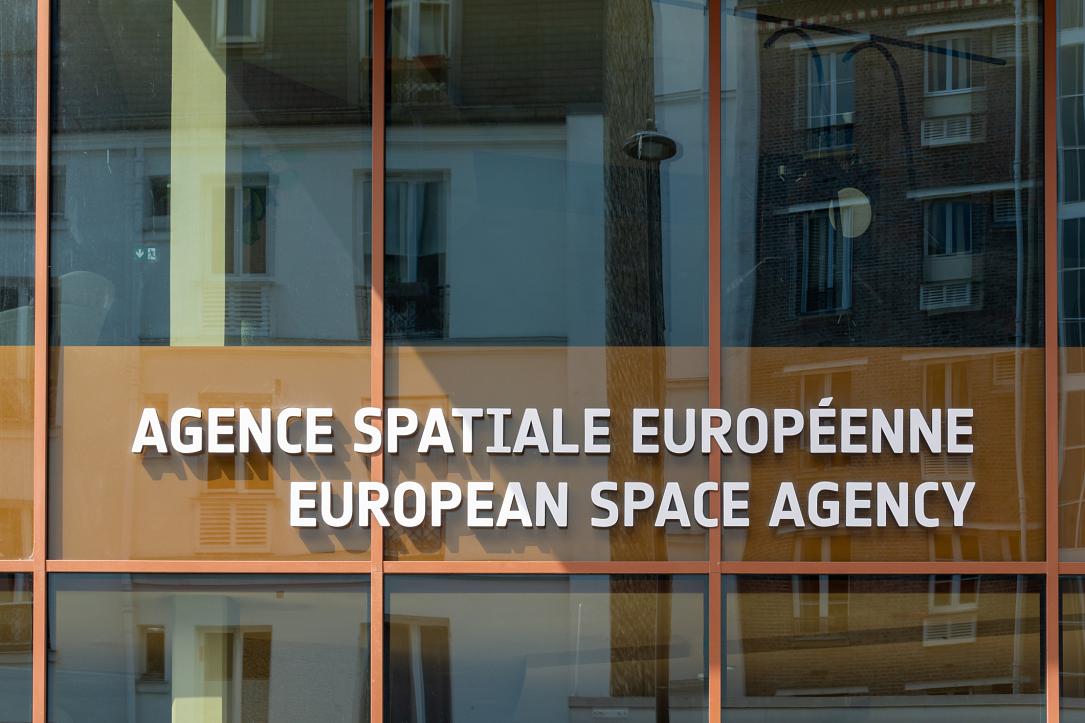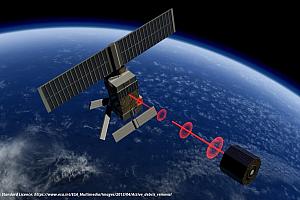GMV subsidiary in Romania chosen to lead European Space Agency's CyberCUBE mission

GMV Romania, a subsidiary of the Spanish technology company GMV, has been selected by the European Space Agency (ESA) to lead the CyberCUBE mission, a significant initiative within ESA's Cyber Evolutions program at its Cybersecurity Operations Center.
The CyberCUBE mission aims to enhance the cybersecurity resilience of space assets, addressing emerging cyber threats in the context of future space operations. It will validate CSOC’s radio-frequency capabilities through real-time demonstrations of sophisticated data analysis tools designed to detect and neutralize potential cyber threats.
It also aims to provide ESA with a flexible and cost-effective cyber capability, demonstrating on-orbit cybersecurity technologies, reducing risks, and accelerating the adoption of cybersecurity solutions for future ESA missions.
“The role of leader in the European Space Agency’s CyberCube mission marks a significant step in GMV Romania’s development strategy, as this is the company’s first space mission. This mission takes place in a crucial field and at a pivotal time when cybersecurity is becoming increasingly essential for future space operations,” said Cristian Chițu, Space Director at GMV Romania, cited by Economedia.
GMV Romania, the main contractor for the initiative, supported by GMV in Spain and Alén Space, will manage the entire lifecycle of the CyberCUBE mission - from specifications and design to procurement, assembly, verification, validation, and launch, as well as initial orbital operations.
More specifically, GMV will deliver infrastructure for both the flight and ground segments, with GMV Romania overseeing the mission's development cycle, including a 3U CubeSat platform provided by Alén Space, which will be equipped with advanced reprogrammable processing capabilities and a payload for cyber monitoring.
The satellite will remain operational for at least one year, collecting critical data on space infrastructure vulnerabilities and resilience to cyber threats.
The mission will also feature a ground control segment provided by GMV, integrating commercial GMV technology, and a ground simulator. ESA’s Cybersecurity Operations Center will manage mission operations and conduct cybersecurity analysis.
GMV will oversee the satellite's launch, ensuring it reaches the designated orbit, enabling regular communication with ESA's primary antenna at the European Space Security and Education Centre in Redu, Belgium. Once the mission is fully operational, GMV will transfer satellite control to ESA for ongoing management.
“The CyberCUBE mission is essential for protecting space assets, and GMV is proud to contribute its expertise and resources to this crucial initiative. The knowledge gained will not only strengthen Europe’s space infrastructure but also support a secure, resilient framework for global space operations,” said Mariella Graziano, GMV’s Director of Strategy and Business Development for Space Systems.
This is not the first time that the Romanian team contributes to space initiatives. On October 7, 2024, at 17:52 (local time in Romania), SpaceX’s Falcon 9 rocket launched the European Space Agency’s Hera mission. Onboard are several technologies designed in Romania: part of the mission’s guidance, navigation, and control (GNC) system, which analyzes the data collected by Hera’s sensors, as well as a CubeSat named Juventas, according to a press release from the ScienceWave Team.
Hera is the first planetary defense mission led by the European Space Agency. The collaboration aims to test methods for deflecting an asteroid from its orbit and to study these potentially threatening celestial bodies to Earth in more detail.
GMV is a private multi-technology business group founded in 1984, operating worldwide in numerous sectors. In 2023, the company recorded total revenues of over EUR 384 million. With over 3,300 employees, GMV currently has subsidiaries in Spain, the United States, Germany, France, Poland, Portugal, Romania, the United Kingdom, the Netherlands, Belgium, Malaysia, and Colombia.
(Photo source: Hcazenave | Dreamstime.com)













